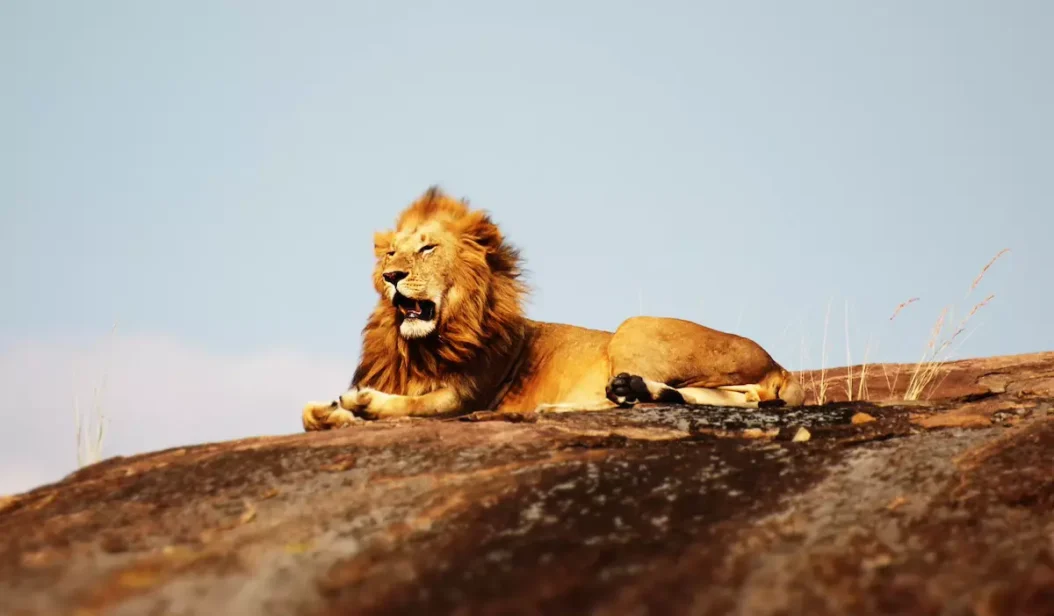The U.S. House of Representatives roared last month when it voted to pass the Big Cat Public Safety Act (H.R. 1380). It was a giant step toward passing legislation that will ban the trade of big cats as pets and will stop their exploitation for cub petting and roadside zoos — two forms of unethical commerce that have been creating a stream of cats who grow up quickly, are too dangerous for private citizens to handle, and too often are discarded.
Lions have vanished from 95% of their historic range in the last 100 years. decade ago there were 30,000 wild lions left on the planet. Today, just 20,000. This magnificent species, whose fossils date back 39,000 years and who ranged across North America, Eurasia, and Africa, appears to be in a death spiral — victims of poaching and a pawn in a killing game by trophy hunters whose insatiable appetite to kill our world’s most beloved wild species is driven by vainglory.
At the Center for a Humane Economy we’ve been working with our sister organization, Animal Wellness Action, to keep big cats on our planet and to treat them right. On Capitol Hill, we’re pushing the Big Cat Public Safety Act — working directly with legislators and leading a coalition of organizations to end private ownership of cats and their display at Tiger King-like roadside zoos.
President-elect Joe Biden’s policy team is already on the job and we’re asking them to shut down imports of sport-hunted trophies from lions and other threatened and endangered species. It’s hard to believe, given the peril they face, that we’d allow globe-trotting American hunters to contribute to the killing and bring back their ill-gotten trophy mounts. We don’t allow trophy hunting of threatened and endangered wildlife in the U.S., and it’s wrong that we allow this inconsistent treatment of foreign-listed species.
In South Africa, where respect for the mighty lion once brought country pride, the government, despite public outcry, is building and promoting a captive lion breeding industry. Here, they use the animals during their entire life cycle — keeping them captives and exploiting them for cub-petting, lion-walking, and ultimately, trophy hunting. Turning its back on legitimate and lucrative wildlife tourism, the government is now enabling the mass production of lions in barren, factory farm conditions to supply an insatiable appetite for bones in China for folk medicines. Additionally, during a zoonotic pandemic that has seen big cats get COVID-19, and knowing full well they can catch and carry tuberculosis, the South African Department of Agriculture, Forestry and Fisheries has amended its Animal Improvement Act (1988) to include lions (and other wildlife) as “farm animals,” clearing the way for human consumption. This, when even China is closing the gates on wildlife farms for the same purpose.
At the Center for a Humane Economy, we’re working with partners in South Africa and globally to expose this litany of horrors while pushing the government to focus on eco-tourism to bolster its economy, rather than enable the cruel exploitation of lions in a way that lacks standards of care on all fronts, destroying the genetic purity of the species while putting the world in danger of more zoonotic diseases.
To save this species we must lead with compassion and fight with the courage necessary to deliver success into the future. Since the illegal and alarmingly cruel killing of Cecil the lion by American dentist Walter Palmer in 2015 — with two arrows over a period of more than 10 hours — 42 airlines responded by refusing to transport lion trophies. It’s now time for global corporations that have long used the lion as their symbol — like MGM Studios, ING Banking, Saab, Lowenbrau and sports teams like the Detroit Lions to step up for one of our planet’s most iconic species by joining our campaign to keep Panthera Leo on our planet. I invite them to join our campaign.
For an estimated two-million years the King of Beasts has roamed our planet. Today, lions are victims of a violent coup. The species is almost gone. It’s up to every one of us to turn the bloody tide fueled by the greed of a minority and take a stand in the lion’s defense to keep the bravest amongst the world’s species here, where they belong.
Jennifer Skiff, Director of International Programs, Animal Wellness Action & Center for a Humane Economy
